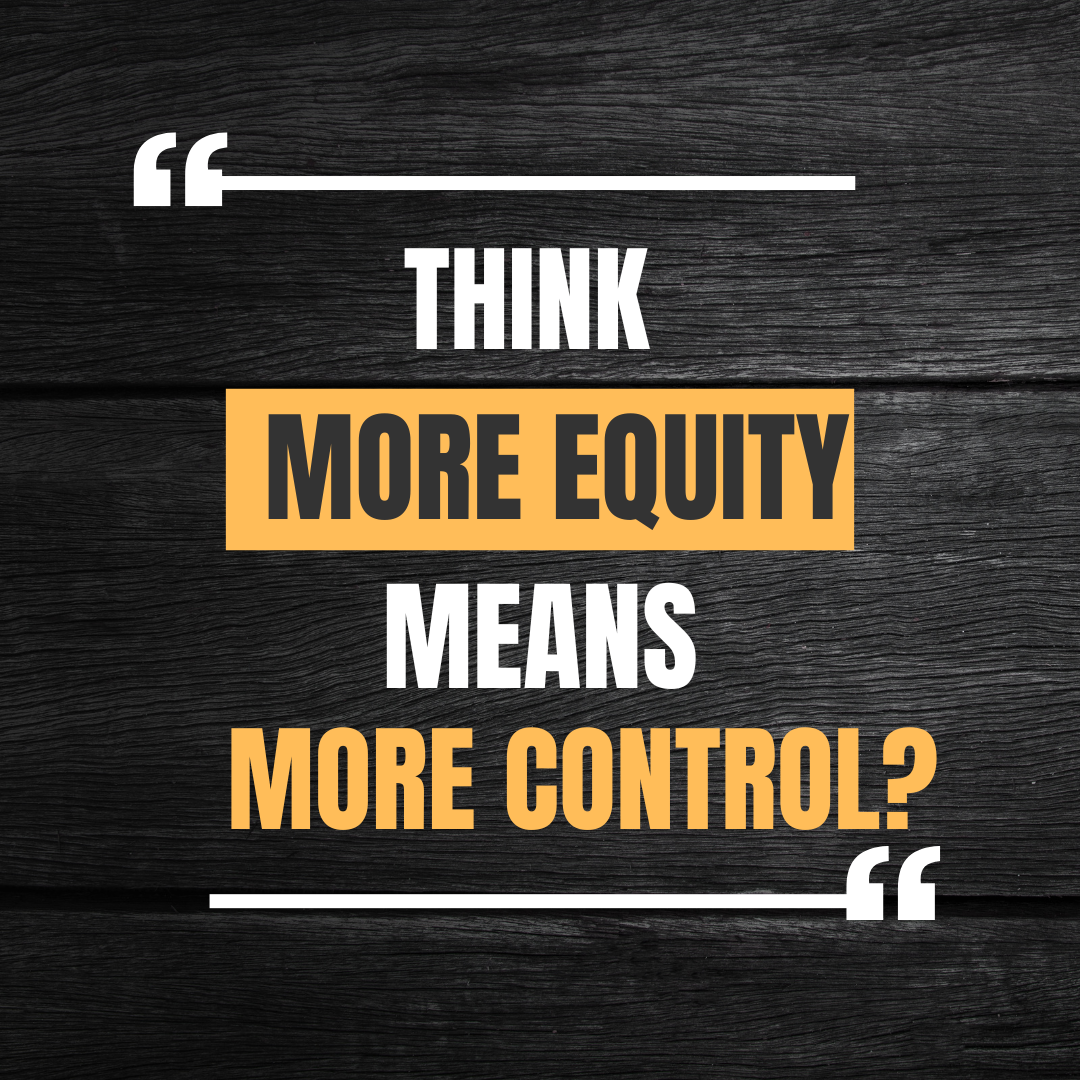The Bulletin
Actionable founder-tested strategies to take you from zero to scale
In the rush to launch and scale, founders often focus on one thing above all else: equity.
Who owns what percentage, who gets diluted, and how much leverage that provides at the table. It feels natural to assume that equity equals authority. After all, more shares should mean more say, right?
Not quite.
This misconception has sunk countless startups. Research shows that 65% of startup failures stem from co-founder disputes. Founders believe equity guarantees control, but it doesn’t.
The truth is straightforward: equity defines ownership, not authority.
Ownership determines payouts and stakes. Control comes from clearly defined roles and strong governance.
When those aren’t in place, chaos follows:
- Majority holders dominate decisions
- Minority voices are silenced
- Innovation stalls under resentment
Why equity doesn’t equal control
Take Pandora. Co-founders Tim Westergren, Jon Kraft, and Will Glaser likely split equity equally. Without clear leadership, the company struggled: 347 failed pitches, ~$2M in deferred salaries, ~$500K in founder debt, and music industry lawsuits.
Only when Joe Kennedy joined as CEO in 2004, alongside clearer founder roles (Westergren on product, Glaser on technology), did Pandora stabilize. This shift enabled its 2005 pivot to internet radio and growth to ~50 million users by 2010.
Reddit faced a similar challenge. Founders Steve Huffman and Alexis Ohanian held near-equal equity, and early disagreements over vision, combined with Condé Nast’s restrictive management post-2006 acquisition, slowed progress.
Ohanian left in 2009. When Huffman returned as CEO in 2015 with clear authority, Reddit scaled rapidly, reaching ~330 million monthly active users by 2018.
How role clarity drives startup success
Clarity pays off. Vesting schedules and clearly defined roles have been shown to reduce disputes and build greater trust and cohesion among founders.
Questions every founding team should ask early:
- What expertise do you bring, and which core function (product, technology, operations, etc.) should you own?
- How will strategic, financial, and operational decisions be divided to avoid deadlock?
- What conflicts (vision, work styles) could derail progress, and how will they be addressed?
- How often will we revisit roles as the company grows?
- What governance mechanisms (voting rights, veto powers) should be included to resolve disputes fairly?
Formalizing these answers through operating agreements and vesting structures creates stability.
Building governance that lasts
Equity alone will not keep a startup on track. Roles, governance, and communication will. Without them, even the best ideas collapse under the weight of conflict.
The founders who succeed are the ones who address these questions early, tie equity to contributions, and build governance systems that last.
Closing thoughts
If you’re building with co-founders, don’t assume equity will solve the question of control. Invest early in clarity, governance, and communication to avoid the pitfalls that have derailed so many promising companies.
What challenges have you seen in balancing equity and control?
Contact Us
You can reach out at sudeshna@joinpionyr.com.
Let’s get in touch.
